Poetry isn’t just one thing with one purpose, just like music or programming. It takes many forms and speaks in many voices. The word poem comes from the Greek word that means “a made thing,” and that’s really what poetry is – a made expression, a way of making patterns that put emotions into words. That’s why poetry books for beginners can be such a great entry point.
Poems are easy to share, easy to pass on, and when you read a poem, you can imagine someone speaking to you or for you—maybe even someone far away, or someone made up or deceased. That’s why we can go to poems when we want to remember something or someone, to celebrate, to look beyond life, or to say goodbye. That’s the magic of poetry. And if you’re a beginner, this list of 13 simple poetry books is a friendly place to start. No pressure, just a soft, honest way to step into the world of poems.
Why Poetry Doesn’t Have To Be Intimidating
If poetry ever felt distant or hard to get into, think back to childhood. There are chances that you’ve already loved poetry without realizing it. It may be in the form of a sing-song bedtime story like Goodnight Moon, a silly rhyme from Barnyard Dance, or even a nursery rhyme passed down by family. Those little moments were poetry too.
To feel close to poetry again, sometimes it helps to go back. Reread a favorite kids’ book. Make up a silly rhyme. And most importantly, stop thinking that poetry is intimidating or complicated. You could start with Emily Dickinson’s “Hope is the thing with feathers.” It’s one of those poems that doesn’t try too hard – it just quietly sits with you, like a kind thought that stays long after you’ve read it.
How To Begin Reading Poetry Without Getting Overwhelmed
Everybody has their own personal taste, especially when it comes to poetry. But if you really have no idea where to start and you find yourself just completely overwhelmed, here is the way you can begin:
Find a songwriter that you like, who writes their own songs, and read their lyrics like poems. See what you notice. What themes do they explore? How do they get their thoughts across? Do they use lots of imagery and extended metaphors? Do they use lots of alliteration and repetition? Allusions? How do they structure their songs? Is it a chronological story, or is it more stream of consciousness?
There are so many creative ways that songwriters tell their stories, and they definitely deserve attention. I love Florence and the Machine, Taylor Swift, Aurora, Dodie, Hozier, Of Monsters and Men, Halsey, Phoebe Bridgers, Bo Burnham, and more. Here are some other ways:
- Find more contemporary poets: Their styles might be a little easier for you to get into than the more structured poems or the more classic poems that used to be more common.
- Listen to poetry: Listen to readings of poems or find an open mic near you. There are always artists trying to share their work somewhere. TikTok has also been a great source for this. That’s where I found Andrea Gibson, and they’ve quickly become one of my favorites.
- Start with the classics: You gotta start somewhere, right? And they are classics for a reason. I personally love so many classic poems. They’re the first ones that I heard in school, and they helped me fall in love with poetry. A few great classic poets like Emily Dickinson, Shakespeare, Robert Frost, Rudyard Kipling, Dylan Thomas, Walt Whitman, Ralph Waldo Emerson, Edgar Allan Poe, and Rilke are some of the best poets to read for beginners.
The 13 Best Beginner-Friendly Poetry Books To Read
These poetry books for beginners are like hard-boiled sweets. You have to sit with them for a while, sucking on each one to get all the flavor out, consume every part of it before moving on to the next. This list mixes classic poetry books for beginners with newer voices, giving you a well-rounded place to start.
1. Bless the Daughter Raised by a Voice in Her Head by Warsan Shire
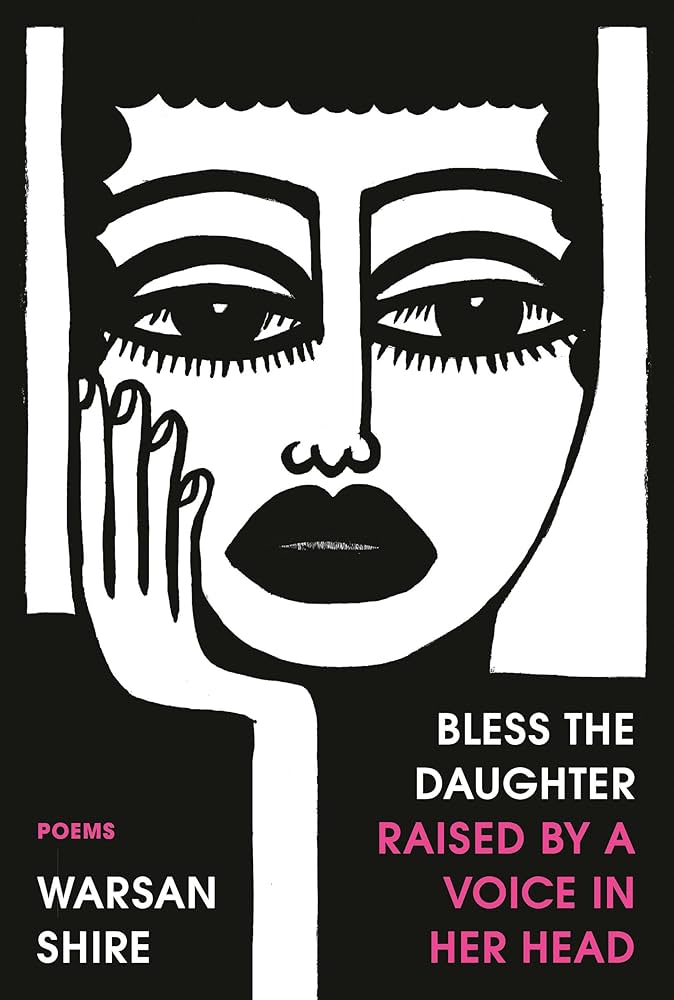
Best poem from the book: Bless the Moon and Home
This is Warsan Shire’s first full-length poetry collection, and it introduces us to a girl who, in the absence of a nurturing guide, makes her own stumbling way towards womanhood. The poetry focuses on immigration, being a refugee, and being a woman. There’s pain and anger in here.
Shire writes in a way that feels like reading diary entries or heartfelt letters. Therefore, they’re easily accessible even if you’re not familiar with poetic structures.
2. The Sun and Her Flowers by Rupi Kaur
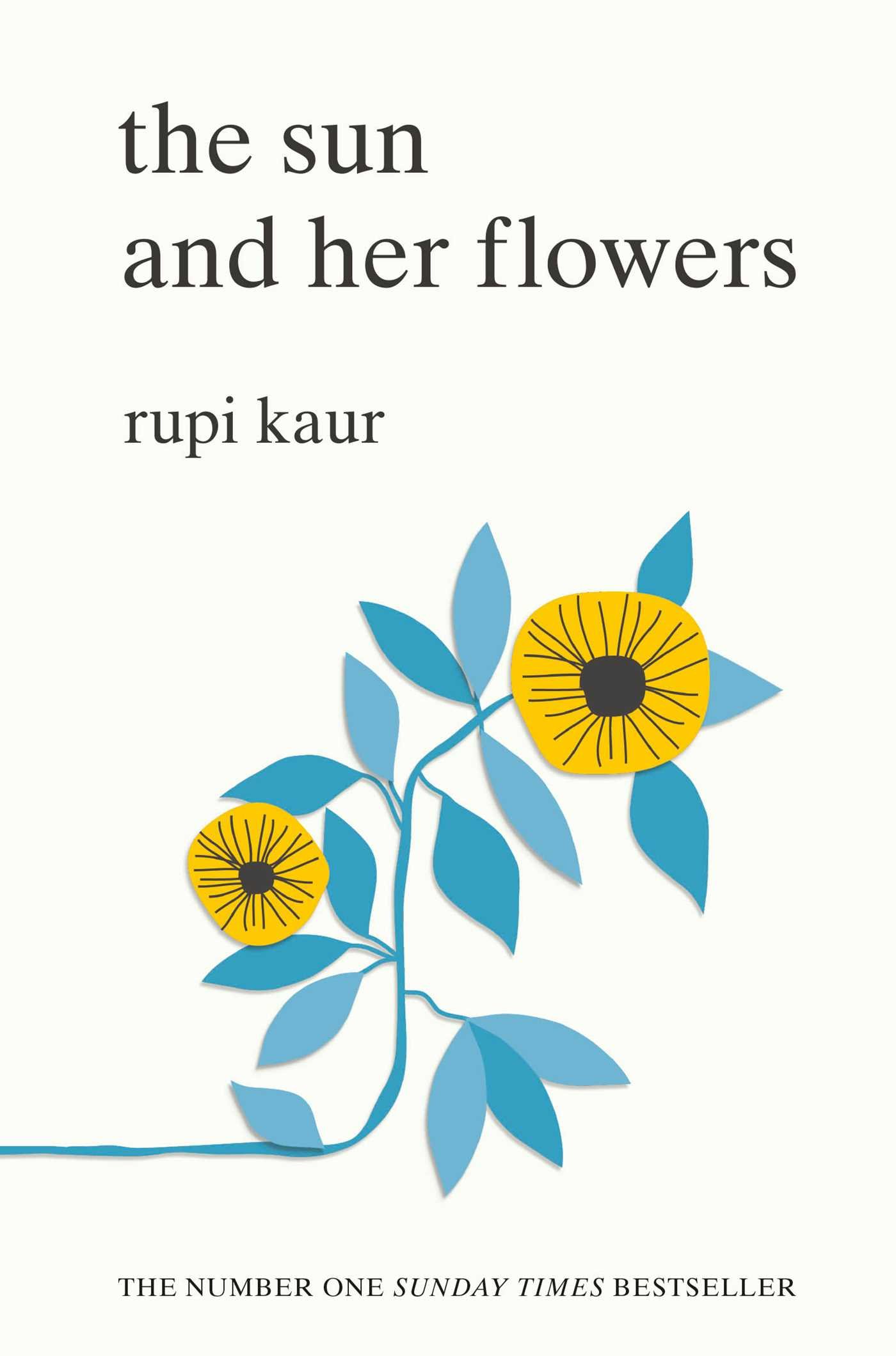
Best poem from the book: Lessons from Mamma
This book feels like it grew naturally, just like a flower. It is divided into five parts that match the life of a flower: Wilting, Falling, Rooting, Rising, and Blooming. Rupi Kaur describes in very simple and honest words about heartbreak, love, trauma, and healing.
It’s the kind of book that reminds you you’re not alone in what you’re feeling. You don’t need to analyze anything, just read and feel your way through it. That’s what makes it a beginner-friendly read.
3. The Selected Poems of Emily Dickinson
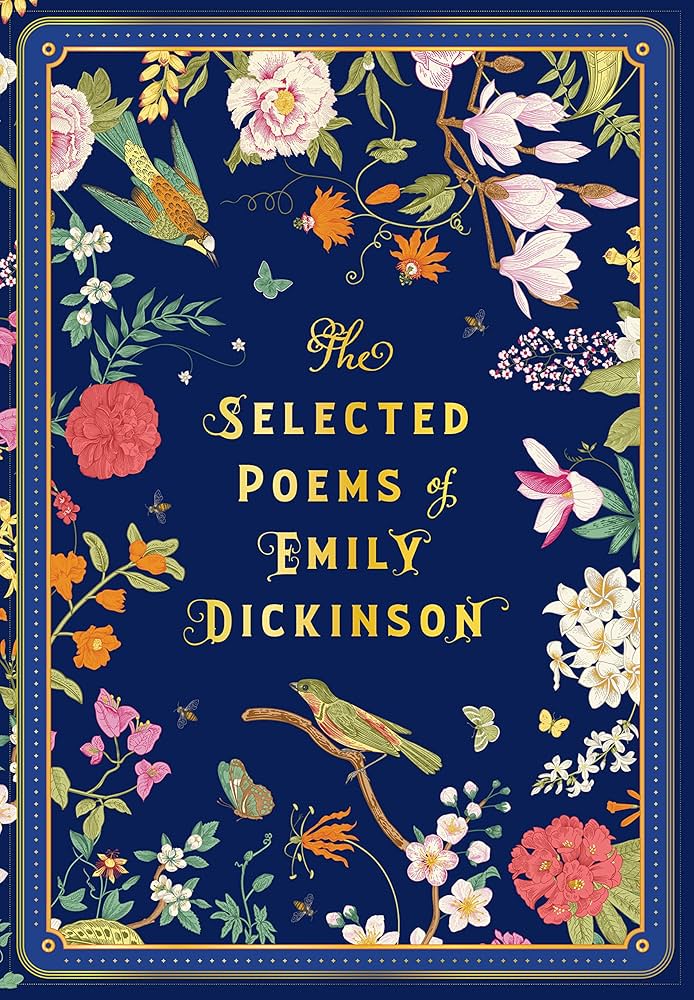
Best poem from the book: I felt a Funeral, in my Brain
Emily Dickinson, one of the greatest poets of all time, kept things simple and short, but her poems really stick with you. This collection starts with a short intro by Billy Collins, and then her poems are grouped into themes like life, nature, love, and time.
Her words are soft and powerful, and every time you come back to them, they seem to say something a little different. Though some of the language in her poems is old-fashioned, it’s still simple and focused. Her writing is easily understandable even if you’re a beginner in poetry.
4. Time Is a Mother by Ocean Vuong
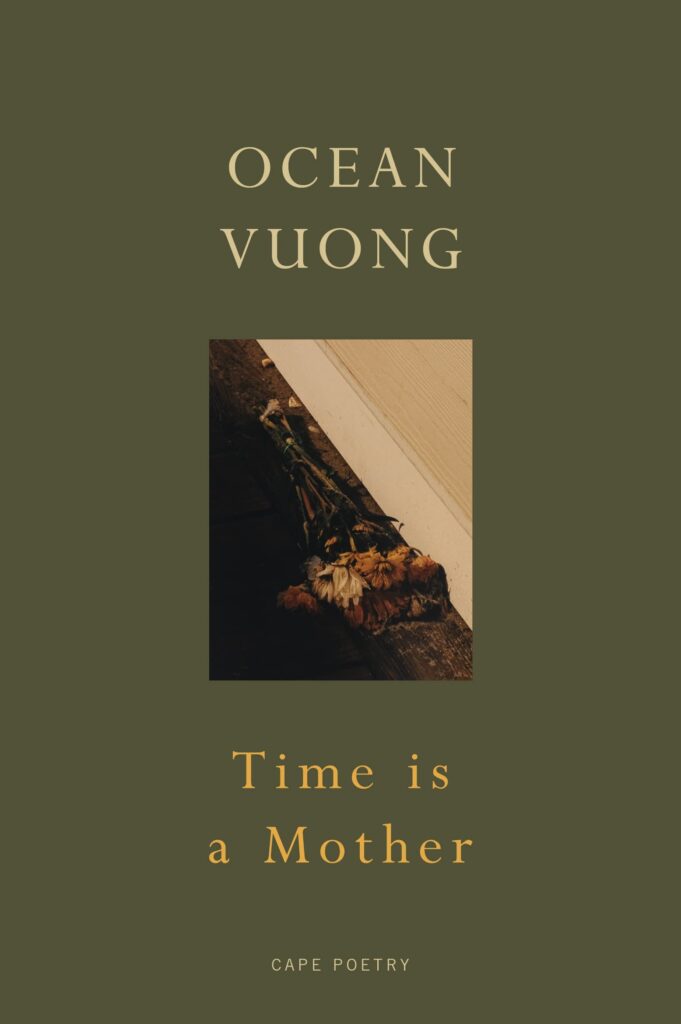
Best poem from the book: Time Is a Mother & Woodworking at the End of the World
Ocean Vuong is just the king of imagery. So many lines from his novel have also stuck with me ever since I read it. I think his metaphors are just so delicate and beautiful. Not a word is wasted in these collections. He has such mastery over language.
This book might sound deep and poetic, but it’s actually a pretty friendly read for beginners. No confusing complicated language, just talks about things we all go through, like losing someone, remembering the past, and dealing with family. It tells those stories in a way that’s clear, moving, and easy to connect with. I would also highly recommend listening to him explain his own work on podcasts and in interviews.
5. If They Come for Us by Fatimah Asghar
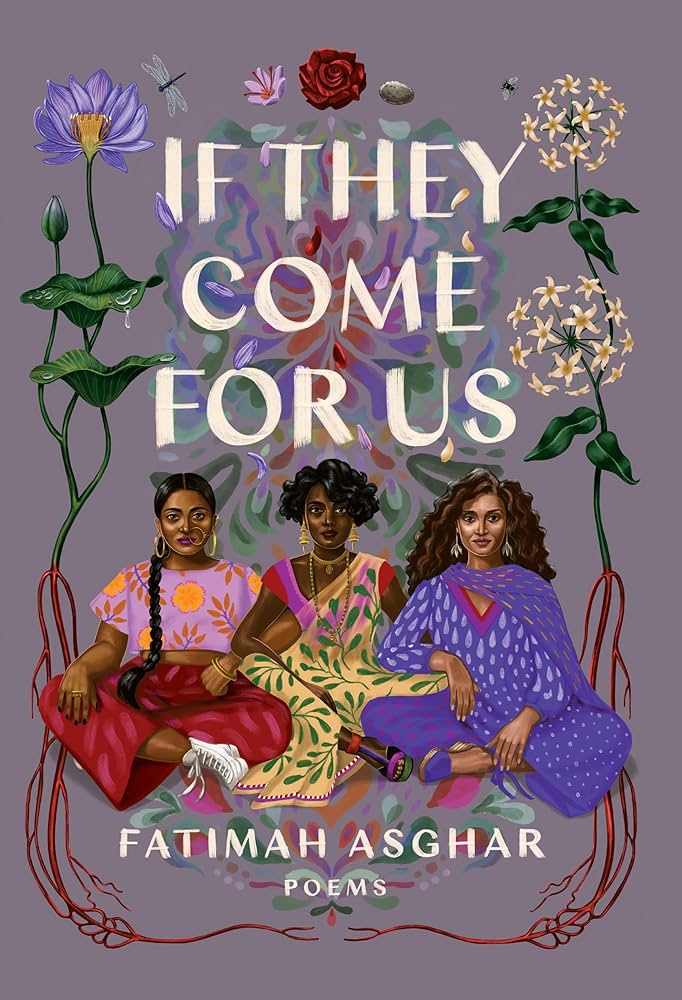
Best poem from the book: Partition
Fatimah Asghar writes about things like family, culture, identity, and what it means to live through tough histories. The book If They Come for Us is more about the Partition of India and Pakistan and connects it to what it means to live with those histories today. She asks honest questions about who belongs and how we define ourselves in the poem.
She writes in plain language about things we all think about, like who we are, where we come from. The poems are short and full of feelings. You don’t need to know anything about poetry rules or deep symbolism to get into it.
6. Leaves of Grass by Walt Whitman
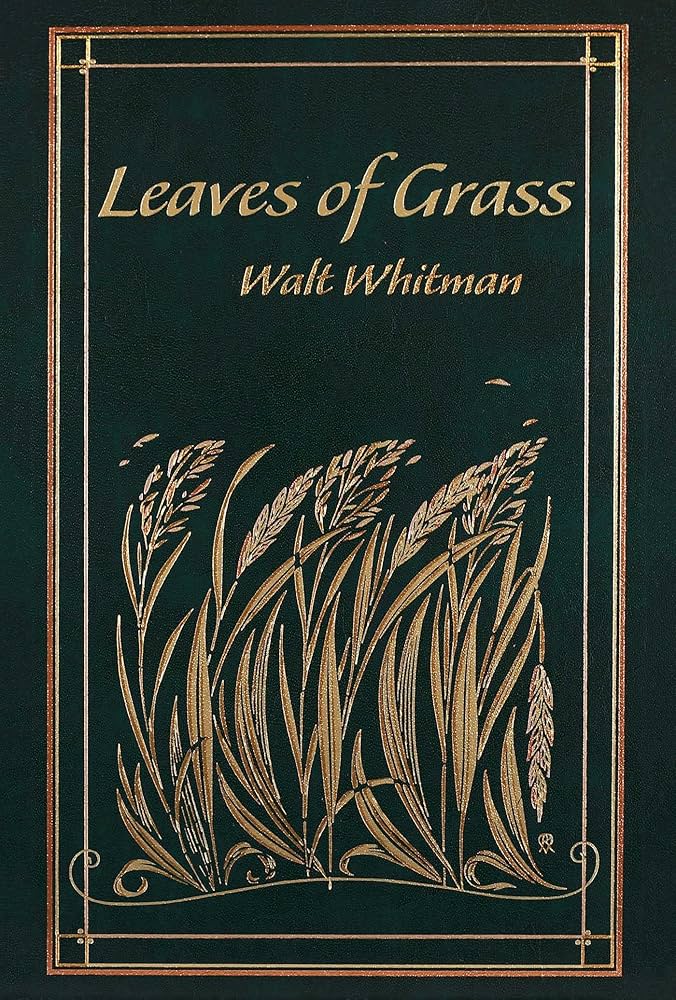
Best poem from the book: Song of Myself
Walt Whitman did his own thing with this one. This book, Leaves of Grass, doesn’t follow the usual poetry rules; it’s more like a celebration of life itself. It talks about being free, loving openly, and feeling connected to the world around you. Even though it was written a long time ago, we still can feel its aliveness and meaningfulness today.
7. The Life by Carrie Fountain
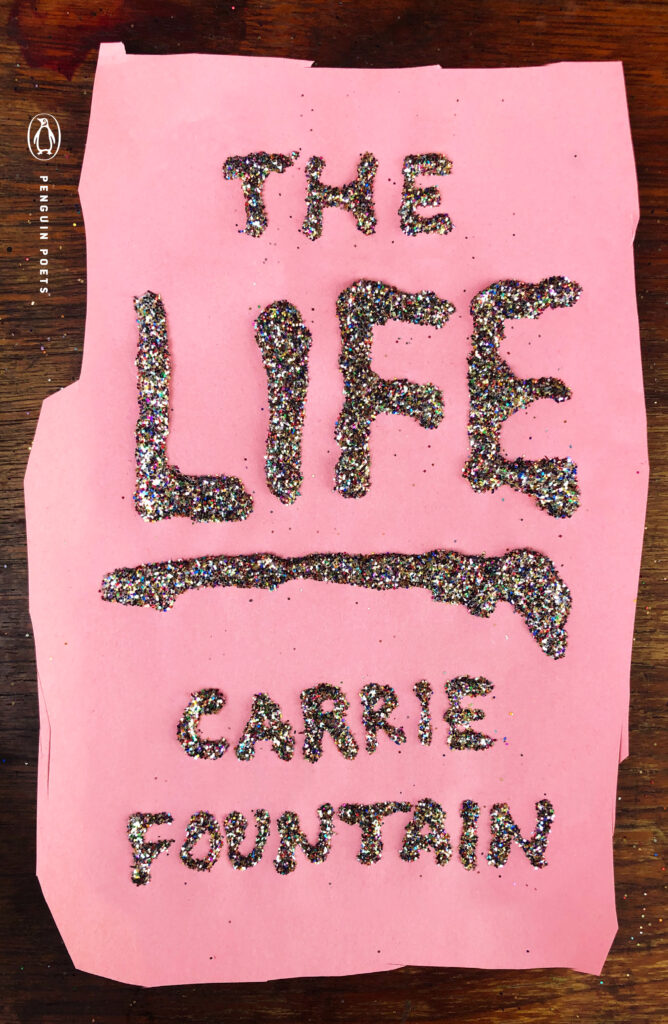
Best poem from the book: The Life
When I read this book, I felt like time was slowing down. It gives you space to breathe, to reflect, and to pay attention to the parts of life that often pass unnoticed. If you’ve ever felt like poetry was too big or too distant, this collection might just change your mind.
The writing of this book doesn’t try to impress you with fancy words or complicated phrases. It simply sounds like someone just talking to you – honest, clear, natural, and easy to follow. Hence, a great place to start if you’re new to poetry.
8. Devotions: The Selected Poems of Mary Oliver by Mary Oliver
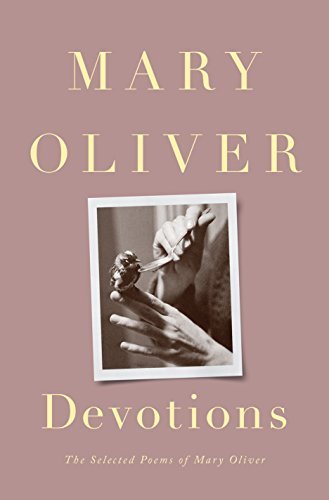
Best poem from the book: Wild Geese
Mary Oliver’s poetry usually focuses on nature, and I find that when I read her poetry, I slow down and observe my environment a lot more. I feel much more connected to my soul. Mary had a tougher childhood when she was growing up, and writing was a way for her to escape.
In this collection of Devotions, she often reflects on her observations of the world around her, simple things like taking a walk, the way her dog acts, or the way she sees animals interact with one another. Her poems give space to breathe, reflect, and just be. You don’t need any poetry background to enjoy her work.
9. A Further Range by Robert Frost
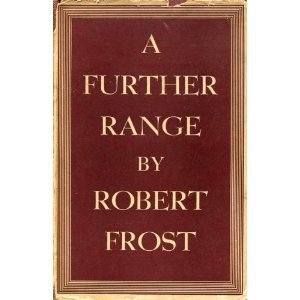
Best poem from the book: Desert Places
Robert Frost had a way of writing that really makes you stop and think. Most people know his famous poems like “The Road Not Taken” or “Stopping by the Woods on a Snowy Evening,” but a personal favorite of mine is “Desert Places.” It’s from his collection A Further Range, which actually won the Pulitzer Prize back in 1937. The last verse of that poem really stays with me:
“They cannot scare me with their empty spaces
Between stars-on stars where no human race is.
I have it in me so much nearer home
To scare myself with my own desert places.”
10. Haruko/Love Poems by June Jordan
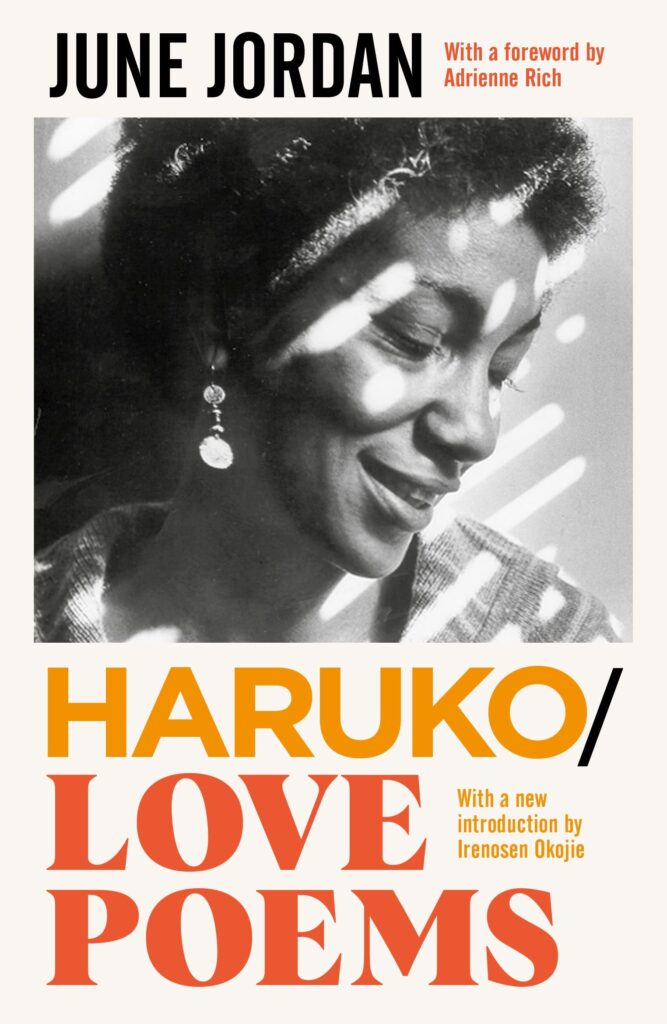
Best poem from the book: Poem for My Love
Sometimes poets just find the words to describe the exact way you feel, and I really think that about June Jordan. This collection is called Haruko/Love Poems. This is a book for lovers. It captures that profound intensity that love and adoration can have, just lying next to the person that you care about. And it’s kind of that soft, tender, sweet love.
The best part is, June’s writing doesn’t hide behind big words or tricky lines. It’s open, honest, and straight to the point. Her words feel personal, almost like a friend sharing their story with you. You don’t have to “figure it out”; you just feel it. That’s what makes this book so easy to connect with, especially if you’re just starting to read poems.
11. The Orange and Other Poems by Wendy Cope
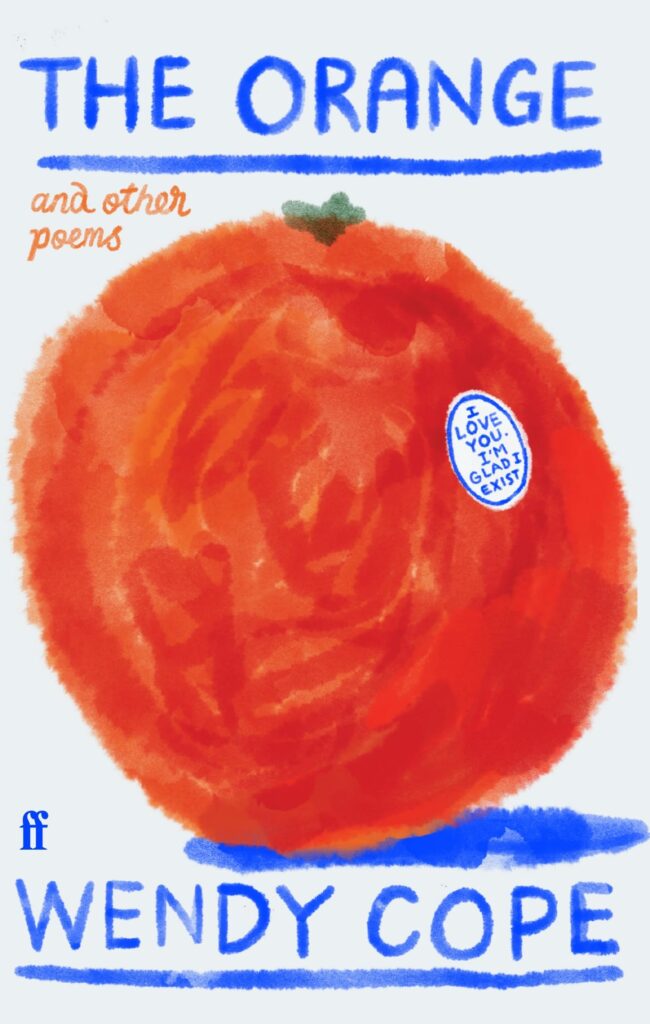
Best poem from the book: The Orange
Wendy Cope’s poetry collection “The Orange” is kind of in response to the immense popularity of the specific poem The Orange, which has gone quite viral on TikTok, just because it’s so lovely. It’s the kind of poem that you just want to wrap around your body in a warm embrace. It just feels like a blanket or like a hug.
12. Self-Portrait as Othello by Jason Allen-Paisant
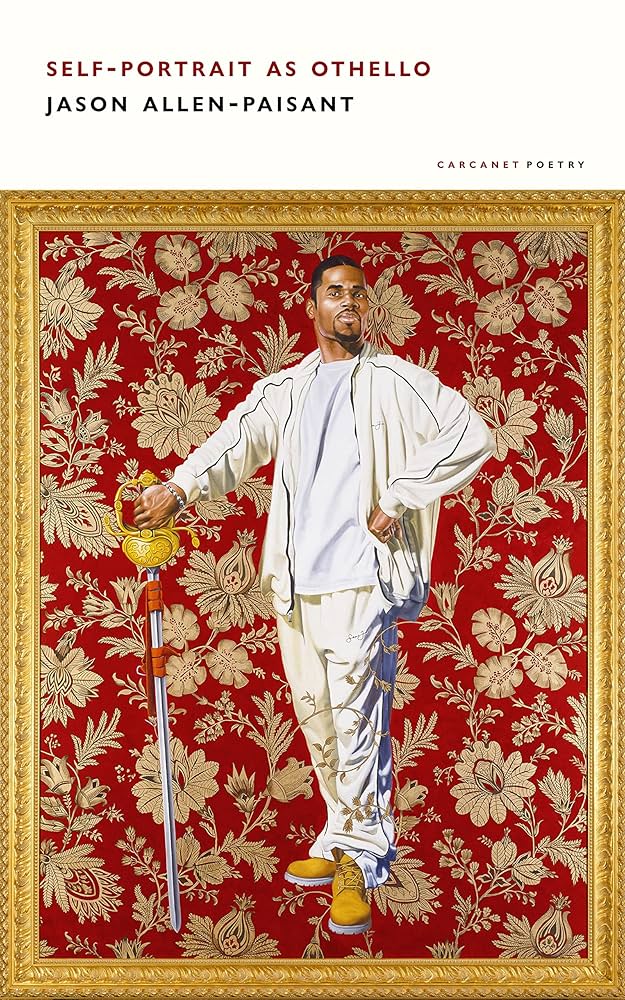
Best poem from the book: Self-Portrait as Othello
Self-Portrait as Othello was nominated for and won a bunch of poetry prizes last year, and rightfully so. Deservedly so. Thoroughly deserved. It is very much in conversation with Shakespeare’s Othello, and there’s a constant dialogue there throughout.
The first half of the collection sort of tells a story through verse—it’s kind of like a poetic memoir, if that’s even a thing.
13. The Colossus by Sylvia Plath
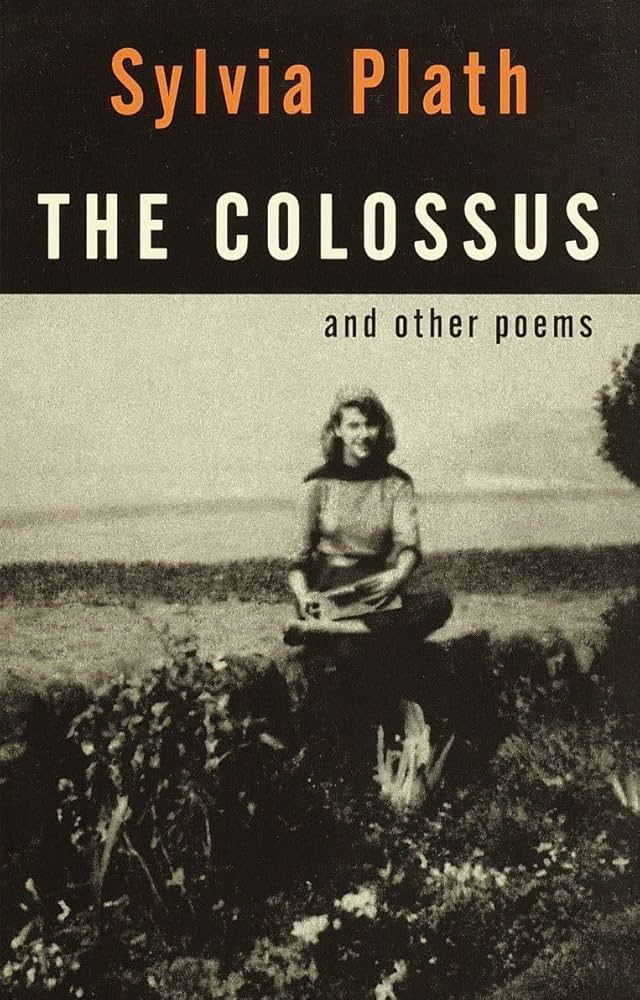
Best poem from the book: The Colossus
This was Sylvia Plath’s first book of poems, and you can feel how powerful and emotional her writing is. Her poems are full of vivid pictures and deep feelings. She talks about things like family, grief, and how strange and beautiful life can be all at once.
Her writing is bold and honest, and strong visuals make it easy to picture what she’s saying. Even when she talks about deep emotions, it feels like she’s letting you into her world. That’s what makes this book easier to read for beginners.
Whether you want timeless themes or something that speaks to today, these are some of the best poetry books for beginners to explore at your own pace.
What Makes A Good Poetry Book For Beginners?
A good beginner poetry book doesn’t try to impress you – it invites you in. It uses clear language, strong emotions, and relatable themes. It doesn’t need fancy form or obscure references. It just needs to feel honest. The best beginner collections speak to something in you, even if you don’t know what that something is yet. Look for poems that make you feel seen, or poems that leave you quiet in the best way.
Final Thoughts: There’s A Poem Out There For You
Believe me, you can totally vibe with poetry without ever setting foot in a literature class. You just need curiosity and a willingness to listen. Somewhere, a poet wrote something that sounds exactly like your thoughts, but turned inside out and made beautiful. Start from the poetry books for beginners and keep reading until you find that one poem. You’ll know it when it finds you. And when it does, don’t let it go. Let it sit with you, shift you, maybe even change how you see the world.
FAQs
Start simple. Read slowly. Focus on how it makes you feel before worrying about what it means. Let the poem sit with you – like music, it often speaks in feeling before form.
Absolutely. You don’t need to know a sonnet from a sestina to enjoy poetry. Just show up with curiosity. The structure can wait; start with what moves you.
Make it easy. Follow a poetry podcast, subscribe to daily poems, or keep a book by your bed. One poem a day is enough to keep your poetic heart fed.
7 Poems That Prove E.E. Cummings Is The Only Poet You’ll Ever Need To Read
Dear Scott, Dearest Zelda: Love Letters Written In Ink And Madness




